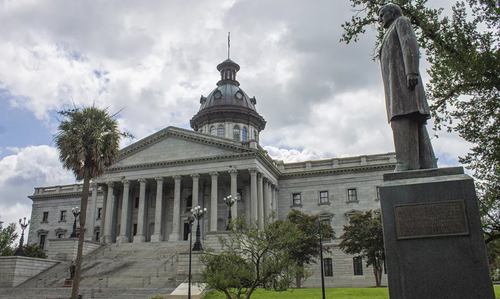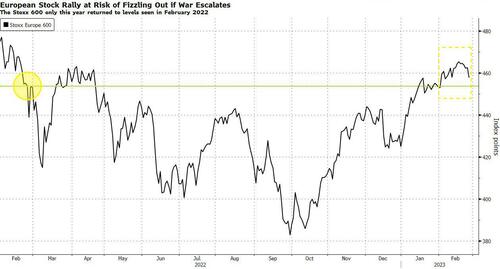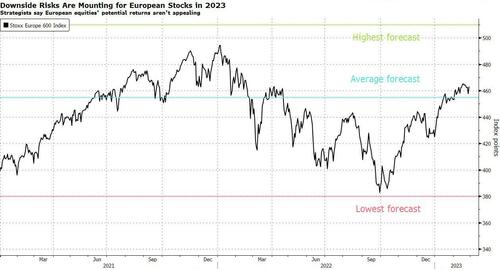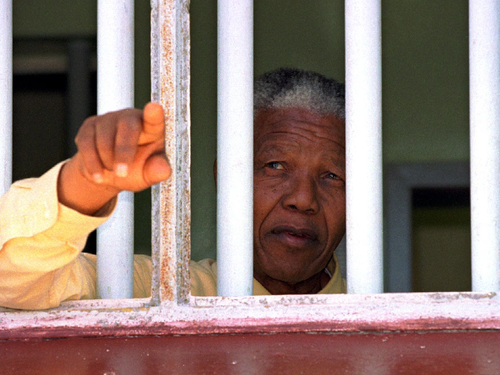Waco: David Koresh, the Branch Davidians, and a Legacy of Rage, by Jeff Guinn, Simon & Schuster, 400 pages, $29.99
Jeff Guinn is a good popular historian. That is not intended as faint praise: He takes interesting topics of real cultural importance—Jonestown, Bonnie and Clyde, Charles Manson—and writes credible and well-researched accounts of them. His new, very readable book on the Waco affair of 1993 is no exception.
As we mark the siege’s 30th anniversary, Waco: David Koresh, the Branch Davidians, and a Legacy of Rage is an essential addition to any collection of books addressing that incident, and it is particularly good on the workings of federal law enforcement. That still leaves room to debate whether Guinn situates the whole affair properly in the context of the time.
The basic story is well known, although virtually every word in any summary would be contested by at least some commentators. In February 1993, agents of the Bureau of Alcohol, Tobacco, and Firearms (ATF) launched a massive raid on the “compound” of an apocalyptic-minded sect called the Branch Davidians, who were based at the Mount Carmel Center near Waco, Texas. The Davidians resisted the assault and effectively drove off the federal agents, who were promptly replaced by the FBI. A siege lasted until April 19, when the FBI stormed the Davidian residence. A fire broke out in the building. It is heavily disputed whether those flames arose from a Davidian desire for mass suicide or from the unintentional effects of the gas canisters used by the federal agents.
In all, 82 Davidians, mainly women and children, died during the whole encounter, as did four ATF agents. Depending on one’s perspective, this was an appalling case of mass cult suicide, a hideous massacre of a peaceful minority religious sect, or a screaming example of bureaucratic incompetence and miscommunication on an epic scale.
Adding to the long-familiar account, Guinn offers some significant new material, especially from ATF personnel involved in the disastrous first assault on Mount Carmel. That ATF side of the story constitutes about a third of the finished book. This is important because most accounts pass rapidly over the initial ATF fiasco before focusing on a day-by-day narrative of the lengthy FBI involvement.
Guinn gives the reader an excellent sense of what it must have felt like being in the ATF ranks during this operation, and we observe the evolving mess in something like real time. We witness the decision making process, with all its flaws. We come to understand that the ATF had a vital political agenda in generating dramatic media coverage of a heroic assault on a cult/terrorist/gunrunning/drug making fortress of evil (feel free to choose your rationale). Basically, the agency was facing yet another attempt to close it down and merge it with some other federal office, and it had to justify its existence. Footage of shackled cultists and seized weaponry would serve that purpose well.
Two basic questions emerge at this stage of the incident. The first involves the necessity for a military assault. The Mount Carmel “cultists” had excellent relations with local Texas law enforcement, and the group almost certainly would have been open to a straightforward warrant search for the rumored drugs, illicitly adapted guns, or other contraband, none of which actually existed. (“Nothing like that here, officer! Care for some ice cream?”) Horrified Davidians made desperate phone calls to the local sheriff’s office during the ATF onslaught, seeking urgent assistance against what arguably was an illegal federal use of armed force.
It is equally baffling why the ATF agents proceeded with the attack when they knew that the Davidians were forewarned. If nothing else, Guinn’s Waco supplies a valuable contribution to the burgeoning literature on military and paramilitary blunders.
Guinn does not say much about the cultural context of the era, but that would have been helpful. The 1980s and early ’90s were marked by a number of raging social and moral panics in the United States, variously involving drug syndicates and evil cults. In 1993, for example, we were at the height of the panic over Satanic ritual abuse, so any invocation of words like cult and compound automatically carried a very rich freight for the average news consumer.
No less important, for a television audience thoroughly immersed in images of Jonestown and poisoned Kool-Aid, the language of cults offered a powerful hint of potential mass suicide. Those expectations proved useful in the aftermath of the catastrophic fire. The Justice Department plunged wholeheartedly into generating and defending the suicide interpretation, to the exclusion of any other view.
Guinn himself presents several possible readings of the final outcome, but he clearly leans toward some form of the suicide theory, which I personally find untenable. Reasonably, he stays away from the florid range of conspiracy literature surrounding the disaster, but he might have paid more attention to William Gazecki’s 1997 documentary Waco: The Rules of Engagement. It makes a convincing case that rash FBI actions caused the fire, however unintentionally.
That film is also very good on the FBI besiegers’ macho and militaristic attitudes and their unconcealed desire to get revenge for the insults that the Davidians had inflicted on fellow federal agents. If something like the Waco siege happened today, we would be much more likely to hear it framed in terms of police brutality and racial oppression, and indeed of Black Lives Mattering. Many of the Davidian “cultists” who perished were black. The group tried to present this element of the story to the wider world by prominently flying a banner proclaiming “Rodney King, We Understand!” At the time, that racial angle attracted virtually no notice in news coverage.
The press’s role is critical to understanding the Waco story, and Guinn really could have said more here. Television and print media alike enthusiastically pushed those images of ruthless cult fanaticism, which offered a cultural framing that supported the government’s grimmest and most diabolical interpretations of the episode. Notably absent from such accounts were any criticisms of the federal agencies. While such media analysis does not fit Guinn’s narrative purposes, they really are vital to understanding the politics of the story as it developed.
In the immediate aftermath of the first shootout, Time offered a double image of Davidian leader David Koresh (“whose heavily armed sect gunned down federal agents”) alongside Omar Abdel-Rahman, the Al Qaeda–linked leader of the first World Trade Center attack, which had occurred only two days before. Time averred that both men showed what went wrong “when believers embrace the dark side of faith.” These themes were reinforced two weeks later, when an anti-abortion activist murdered a doctor who performed abortions in Pensacola, Florida.
In its various forms, it seemed, religious fanaticism was rampant in the United States. Still more potent visuals followed the final April fire. Time‘s shocking cover was frankly propagandistic. It featured a laughing Koresh superimposed on the burning compound and included a biblical subhead: “His name was Death, and Hell followed with him.” People, another mass-circulation magazine, reported from “Inside the Waco Cult,” with its “Evil Messiah,” a pedophile who led his fanatical disciples to tragedy. Cartoons depicted Koresh alongside Abdel-Rahman and (inevitably) with a ghostly Jim Jones, who offers Koresh a Kool-Aid. The uncritical acceptance of the mass suicide story made it all but impossible for critics of federal actions to make their case without being denounced as conspiracy nuts.
Guinn ends his book with a consideration of Waco’s contributions to driving the militia movement that became such a potent national force in the mid-1990s. He is undoubtedly correct on his basic point about the “legacy of rage,” but I would disagree with him about the genealogy of this phenomenon. As Guinn notes, Timothy McVeigh was appalled at news of the Waco fire, and two years later, to the day, he perpetrated the bombing of the Alfred P. Murrah Federal Building in Oklahoma City. That linkage seems clear enough, but another view is possible.
Throughout the 1980s, multiple neo-Nazi and other far-right groups had been active in the United States, and McVeigh had contacts with several, including a group based at Oklahoma’s Elohim City. Another former resident of Elohim City was Richard Wayne Snell, who murdered a police officer and was executed on the very day of the Oklahoma bombing. Meanwhile, any suggested links between the Oklahoma City bombers and the rising militia movement are extremely slim, to the point of scarcely visible. But from a media perspective, the simple Waco/Oklahoma City/militia connection makes for a more dramatic narrative.
Anyone interested in the violent fringes of American religious history should read Guinn’s Waco. But they should be ready to range further for a fuller account.
The post <i>Waco</i> Offers New Insights From ATF Agents appeared first on Reason.com.
from Latest https://ift.tt/jSPN1b0
via IFTTT











